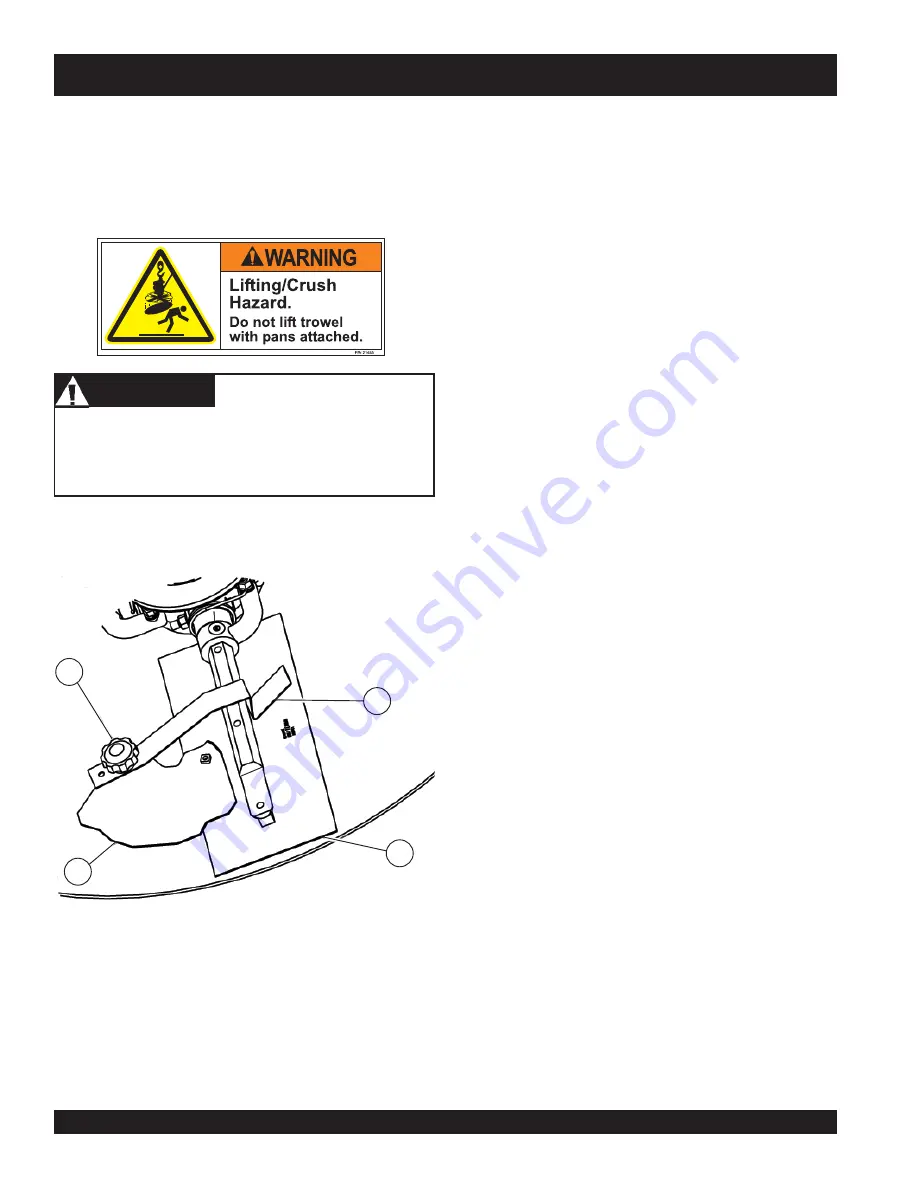
PAGE 38 — HTN 31V
HTN-SERIES • RIDE-ON POWER TROWEL — OPERATION MANUAL — REV. #0 (06/06/07) — PAGE 38
HTN-SERIES — MAINTENANCE
3
2
4
1
Figure 40. Z-Clip Finisher Pan Installation
These round discs sometimes referred to as "pans" attach to the
spiders arms and allow early floating on wet concrete and easy
movement from wet to dry areas. They are also very effective in
embedding large aggregates and surface hardeners.
Installing Pans Onto Finisher Blades
1. Lift trowel just enough to slide pan under blades. Lower
finisher onto pan with blades (item #1) adjacent to Z-Clips
(item #4).
2. Rotate blades into position under Z-Clips. Ensure that the
blades are rotated in the direction of travel when the machine
is in operation or use the engine to rotate the blades into
position.
3. Attach the blade tie-downs (item #3) to the far side of the Z-
Clip brackets (item #4) with tie-down knobs (item #2) as
shown in figure 40.
4. Check to make certain that the blade edges are secured
under the Z-Clips and the tie-downs are secured completely
over the edges of the blade bar before the machine is put back
into operation.
ALWAYS
install pans either on the work area or on an area
that is next to and level with the work area.
DO NOT
lift the
trowel when the pans are attached.
WARNING
WARNING
WARNING
WARNING
WARNING
1
BLADE ASSEMBLY
2
KNOB, TIE-DOWN Z-CLIP PANS
3
TIE-DOWN, BLADE
4
Z-CLIP, PAN
Refer to Figure 40 when installing pans onto finisher blades.
Decommissioning Trowel/Components
Decommissioning is a controlled process used to safely retire a
piece of equipment that is no longer serviceable. If the equipment
poses an
unacceptable and unrepairable safety risk due to wear
or damage or is no longer cost effective to maintain, (beyond life-
cycle reliability) and is to be decommissioned,
(demolition and
dismantlement), the following procedure must take place:
1. Drain all fluids completely. These may include oil, gasoline,
hydraulic oil and antifreeze. Dispose of properly in accor-
dance with local and governmental regulations. Never pour
on ground or dump down drains or
sewers.
2. Remove battery and bring to appropriate facility for lead
reclamation. Use safety precautions when handling batter-
ies that contain sulfuric acid, (See page 12).
3. The remainder can be brought to a salvage yard or metal
reclamation facility for further dismantling.
























